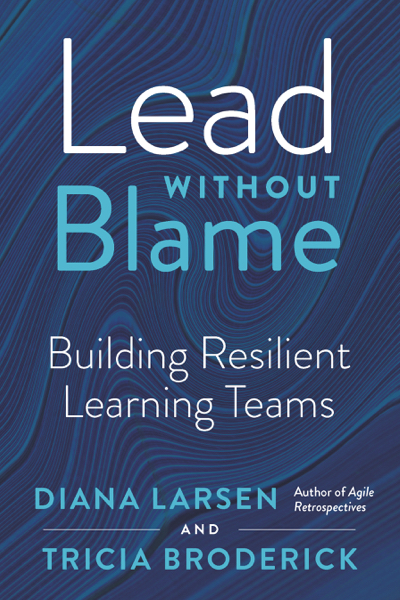As promised, I’m going to occasionally have guest blog post. This one comes from my colleague Bob Hartman with Agile For All.
——————————————————————————
I’ve been unfortunate enough to be on the leadership side of several Reduction in Force events. Let me start by saying I really dislike the terms RIF and layoff. I believe those terms are used to help leaders feel less negative emotion about what is happening. We all know that we really are firing people. Most of the time it is being done because they company is not being successful in some measurable way. In my case it was specifically because the company was not meeting the goals it had in terms of revenue and we couldn’t afford to keep everyone. That isn’t always the case. We see a lot of companies doing this now. In high tech, we have recently seen Microsoft, Amazon, and IBM have let people go. None of those companies are “failing” by most any measure, yet they got rid of some people.
Regardless of the reason for the “mass firing” event, it impacts people’s lives tremendously. You might ask why I call it a mass firing? The reason is simple: that’s what it is. Doesn’t that seem like harsh wording? Yes, that’s the point! I believe when we confront the reality of the situation then we deal with it more appropriately. A mass firing is a terrible tragedy and we should try to avoid it if at all possible. Instead we call it a RIF and companies do them all the time. Yes, that was my soapbox, I’ll step off of it now.
Remembering how a mass firing would impact the lives of those affected was the most important thing I tried to remember as a leader through those difficult times. All the HR training in the world will tell you to be dispassionate, don’t get emotional, etc. What they don’t tell you is you can do all that and still be humane and caring. Here are 5 lessons I learned from having had to lead a group through several mass firings:
- Unless there is a legitimate performance reason someone is being let go (and if that’s the case why make it part of the mass firing?) you need to help them understand that it is not their fault. Many people want to know why them? Unfortunately, the answer is always that very, very difficult decisions had to be made after considering a lot of factors, but it is not their fault they were chosen. As a leader you need to truly believe this as well. The person affected will be on high alert to your non-verbal clues, so believe it and help them believe it.
- Treat the person with dignity and respect. What is happening to them is one of the most emotionally wrenching experiences imaginable. Through a long life of experience, I don’t think I’m out of line when I say most people wrap a significant portion of their self-worth in their work. That is being directly challenged by what is happening and it is soul-crushing to many people. They need you to help them maintain their dignity by treating them with dignity and respect.
- Follow your company rules for what is occurring. This is important because from a legal standpoint you need to be able to say you did everything by the book in case anyone takes legal action against you or the company. Having said this, you can check all the boxes in the procedure and still be human about it!
- Let the affected person vent. They may need to complain about anything and everything that has happened and why they are the wrong person to be fired. They may bring up a lot you didn’t know about things behind the scenes. This is when you need to be really listening. You must address any unhealthy things with the remaining people immediately afterwards.
- Remember the people that are not affected. You need to clearly articulate what happened and why it happened. You should not go into explanations about how people were chosen! Help them rally around being the survivors and be ready with some ideas about how to get them to understand how to move forward as a team. They will feel significant loss, so don’t expect a high degree of productivity right away. Help them work through it and give them a lot of room for processing what happened.
- Consider sacrificing yourself to save others. Ask yourself the hard questions: Am I doing the right thing by staying? Am I leading in a way that will avoid this happening again? Is having me here worth more than keeping more of the people below me? Is someone else ready to step into my role if I leave? I had to ask myself these questions over and over, and as the company continued to flounder I was forced to make the decision to leave myself rather than having to sacrifice more people. It was one of the best decisions I ever made.
I hope this helps you navigate one of the most difficult days in the life of a leader! There are many more things that can be added to this list. If you have some specifics, leave them in the comments.




